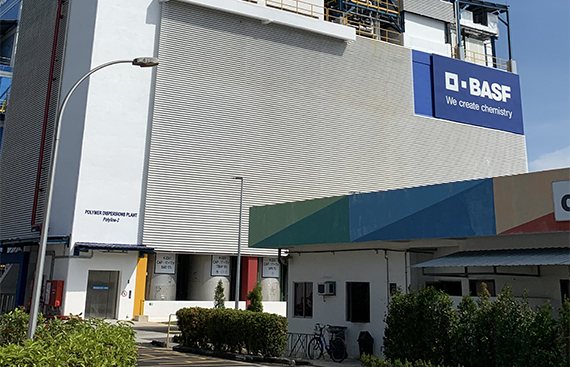More news
- New Managing Director of BASF’s Coatings division
- Global New Material International (GNMI) to acquire Merck’s Surface Solutions busine...
- Delta Coatings unveils plans for global eco-friendly HQ and plant
- PPG recognised for sustainability progress by FTSE4Good for sixth consecutive year
- ChemQuest expands Business Development team, names four VPs

BASF has started up its new acrylic dispersions production line in Pasir Gudang, Malaysia, doubling its capacity. The state-of-the-art facility will produce acrylic dispersions serving the coatings, construction, adhesives and packaging industries in Asia Pacific.
The new production line complements the existing set-up and allows the production of new dispersions technologies under Acronal® EDGE, Acronal® PLUS, Joncryl® and next generation Acronal® ECO product ranges. It is committed to ensuring that itssystems are environmentally-friendly. This new line is equipped with condensate stripping recovery technology that reduces freshwater consumption and wastewater generation.
The production site at Pasir Gudang is situated in the integrated multi-purpose Johor Port Free Trade Zone, thus, making it a strategic location for exports to the region. "With proximity to three world-class ports, the expansion will be a key supply point for our customers in Malaysia, Singapore and other ASEAN countries, also in Australia and New Zealand (ANZ). The first commercial quantities will be produced for our customers in March this year,” said Peter van der Zwan, Director of ASEAN & ANZ Dispersions & Resins, BASF.
"As a growth business within BASF, we will continue to invest into enhancing our asset network for polymer dispersions in this region, which is strongly backed by our own R&D capabilities in Asia Pacific. The new production line enables us to capture growth opportunities in the fast-growing emerging markets, as well as enhance our reliability towards our customers in ASEAN and ANZ,” said Jeff Knight, Senior Vice President, Dispersions & Resins, Asia Pacific, BASF.
BASF began operating its first acrylics dispersions production line in Malaysia in 2015 at Pasir Gudang.



